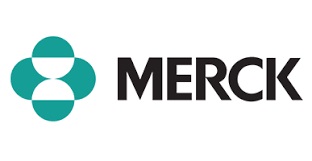Key Findings from Phase 3 Trial
Merck (NYSE: MRK), known as MSD outside the U.S. and Canada, has presented pivotal data from the 3475A-D77 Phase 3 trial at the European Lung Cancer Congress (ELCC) 2025. The study evaluated the subcutaneous administration of pembrolizumab with berahyaluronidase alfa, compared to intravenous (IV) KEYTRUDA®, for treating metastatic non-small cell lung cancer (NSCLC). The trial met its primary endpoints, demonstrating noninferior pharmacokinetics (PK) with a median injection time of two minutes.
Regulatory Progress
The U.S. FDA has accepted a Biologics License Application (BLA) for subcutaneous pembrolizumab across all KEYTRUDA-approved solid tumor indications, setting a target decision date of September 23, 2025. Additionally, the European Medicines Agency (EMA) has validated an extension application for the new administration method.
Efficacy and Safety
Secondary endpoints, including objective response rate (ORR), progression-free survival (PFS), and duration of response (DOR), were consistent between subcutaneous and IV administration. Median overall survival (OS) was not reached in either arm. Safety data showed a comparable incidence of Grade ≥3 adverse events (47% for subcutaneous vs. 47.6% for IV KEYTRUDA), with low rates of injection site reactions.
Time Efficiency and Patient Convenience
A time and motion study revealed significant reductions in treatment time:
- 49.7% less time in-chair (59.0 vs. 117.2 minutes)
- 47.4% less time in the treatment room (66.7 vs. 126.9 minutes)
- 45.7% reduction in healthcare professional (HCP) time
Ongoing Research and Future Implications
Merck continues to explore subcutaneous pembrolizumab in new trials. These include studies for high PD-L1 expression NSCLC and relapsed lymphomas. If approved, this innovation may enhance patient experience, improve accessibility, and reduce treatment burden.
























